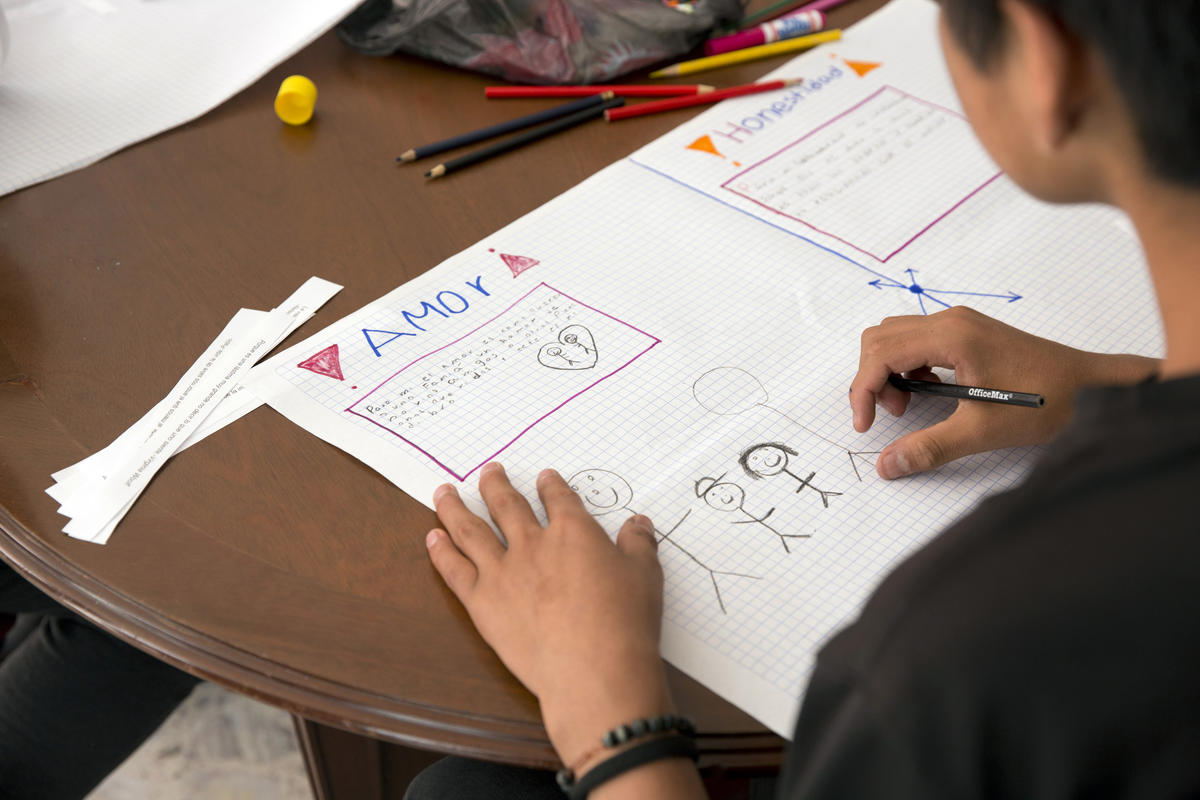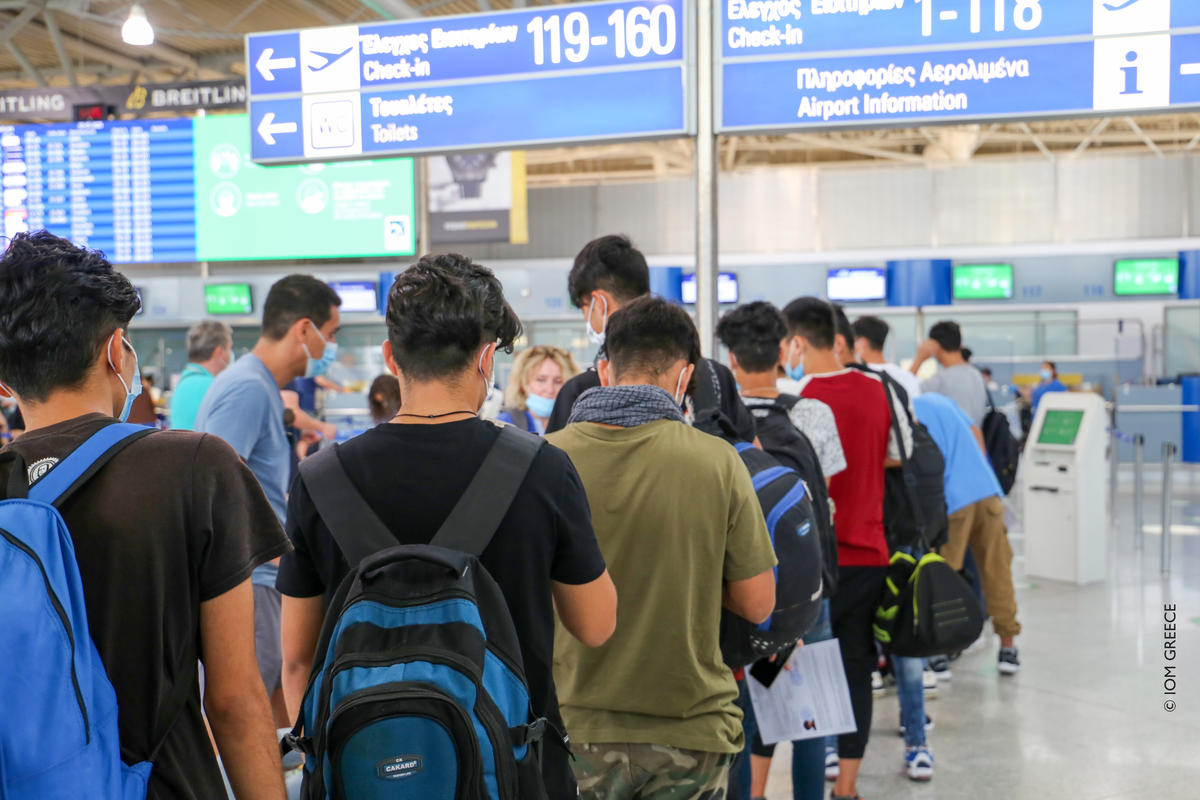Somalis rescued in Gulf of Aden
Somalis rescued in Gulf of Aden
You'll recall we expressed UNHCR's concern on Tuesday over the plight of Somalis and others taking to rickety boats in the Gulf of Aden and our fears we'll be seeing more of this in the months ahead. Over the past few days, we had another incident.
UNHCR wants to praise the humane gesture of the captain and crew of the Danish ship "Eli Maersk," who on Wednesday night rescued 39 Somalis adrift in the Gulf of Aden. That night, the crew of the 330-metre tanker noticed a group of people adrift in a small boat waving and screaming for help. The tanker's captain halted the Eli Maersk and brought the people on board. Those rescued turned out to be Somalis who had apparently paid smugglers to cross the Gulf of Aden. They had been stranded at sea for several days due to an engine failure. Two of the passengers were in critical condition and in urgent need of medical care. One woman had just delivered a baby, and all passengers were in dire need of water and food.
The tanker's captain immediately established contact with UNHCR and various authorities in the region, and yesterday (Thursday) was given authorisation to dock in Djibouti. UNHCR staff were on standby throughout in Yemen, Egypt, Djibouti and Geneva. On Thursday afternoon at 4 p.m., the 39 were allowed to disembark in Djibouti. By that time, one of the critically ill passengers had died, despite medical care he had been provided on board. Three others (including the mother and baby) were immediately transferred to a medical facility. All the others were temporarily put up in a military facility. UNHCR was present and provided food and assistance to the group.
While the 39 have not asked for asylum and we're not certain of their intentions, this incident once again highlights the tragedies that are occurring all too often at sea when people pursue illegal means through smugglers to seek refuge or a better life.
UNHCR wants to commend the Government of Djibouti for receiving these people in need
And we also want to commend Maersk. This is at least the second time in about three months that Maersk vessels have rescued distressed people at sea. We commend Maersk for its adherence to international law and custom, and for the humanitarian concern shown by everyone involved on the Eli Maersk and at the company itself.
At a time when shippers are constantly asked to cut costs and boost efficiency, it remains vital that they continue to take the time and the trouble to rescue people in peril - be they refugees or any other people in distress. As I mentioned, another Maersk ship rescued another group of 27 people in the Mediterranean in late May after they had been adrift more than a week, with several vessels ignoring their pleas for help.
In a related development, UNHCR is organizing a two-day international meeting of experts on "Interception and Rescue-at-Sea in the Mediterranean," beginning Monday (12 Sept) in Athens. The aim of this roundtable, which will bring together experts from most Mediterranean states, as well as representatives from the shipping industry, international organisations, non-government organisations and academia with a specific expertise in this field, is to discuss how to reconcile migration controls with refugee protection.
Every year, thousands of migrants and asylum seekers wishing to reach Europe undertake the perilous journey through the Mediterranean in search of safety, refuge from persecution, or simply better economic conditions. The human tragedy associated with the rising death toll at sea has brought an added dimension of "humanitarian crisis" to these maritime mixed movements of migrants and refugees.
The meeting in Athens is expected to provide a series of concrete recommendations for a second meeting to be held in Madrid on 17 and 18 October which will bring together government representatives from all the Mediterranean coastal states.









